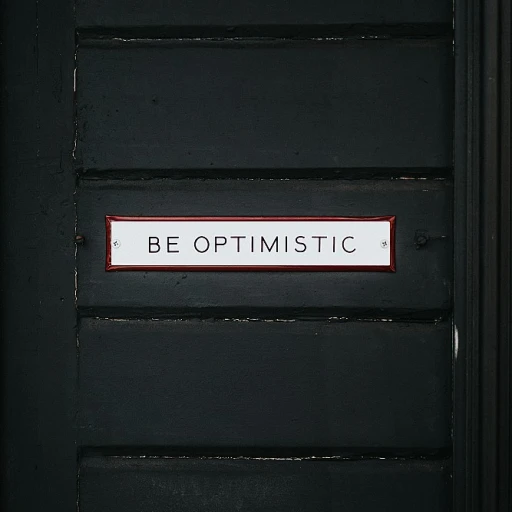The Role of Pre-Adverse Action Notices in Hiring
The Significance of Pre-Adverse Action Notices in the Hiring Process
In the realm of human resources, pre-adverse action notices play a pivotal role in the hiring process. These notices are essential in ensuring that employers remain compliant with the Fair Credit Reporting Act (FCRA) when making employment decisions based on background checks. The process involves notifying the candidate before any adverse action is taken, such as rescinding a job offer or terminating employment based on information found in a background check.
Employers often rely on consumer reports and background screenings to make informed hiring decisions. These reports can include a variety of data, such as criminal records, credit reports, and employment history. When an employer considers taking adverse action based on these reports, they are required to provide the applicant with a pre-adverse action notice. This step allows the candidate to review the information and dispute any inaccuracies with the reporting agency.
One of the main objectives of pre-adverse action notices is to ensure transparency and fairness in the hiring process. By informing candidates of potential adverse decisions and providing them with a waiting period to respond, employers uphold the principles of fair credit reporting. This not only protects the rights of the applicants but also helps maintain the integrity of the hiring process.
For employers, navigating the legal landscape of pre-adverse action notices can be challenging. Compliance with FCRA is crucial to avoid legal repercussions and ensure a fair hiring process. It's important for employers to stay informed about regulations, such as those that restrict pending charges in background checks. For more information on these regulations, you can explore which states restrict pending charges in background checks.
Legal Implications and Compliance
In the complex landscape of employment, adhering to legal mandates around pre-adverse action notices is crucial for organizations to remain compliant. One pertinent legislation that governs this area is the Fair Credit Reporting Act (FCRA), which regulates how employers use consumer reports, such as background checks, in the hiring process.Understanding Legal Responsibilities
Employers must follow specific protocols when they decide to potentially rescind a job offer based on information from a background check or consumer report. The adverse action process begins with a pre-adverse action notice, which informs the candidate that an unfavorable decision might be made. This transparency is not only a legal obligation but also provides the candidate an opportunity to address or dispute any inaccuracies in the report. The FCRA stipulates that before denying employment based on a background screening report, employers must provide applicants with a copy of the report and a summary of their rights under the FCRA. This waiting period is crucial as it allows candidates to review and contest the findings before a final adverse action letter is issued.Navigating Compliance Complexities
Compliance with these legal requirements can be intricate, especially for organizations managing numerous applicants. Adopting systematic approaches can aid in maintaining accuracy and consistency. For example, leveraging technology for managing consumer reporting and coordinating with reporting agencies ensures that reports are handled with due diligence. Moreover, the employment background check process demands vigilance regarding emerging legal trends and a proactive approach to compliance. This ensures that any changes in regulations, like those concerning credit reporting or criminal records, are swiftly incorporated into the organization's hiring protocols. For a comprehensive understanding of legal implications in HR practices, including pre-adverse action notices, the legality of unpaid internships offers insights that are beneficial for HR professionals striving for compliance and legal clarity. Such resources equip professionals to better navigate the multifaceted legal landscape accompanying HR decisions.Impact on Candidate Experience
Refining the Candidate Journey
Understanding the influence of pre-adverse action notices within the employment background check process has become paramount for employers committed to enhancing candidate experience. These notices, a crucial component of the hiring process, prompt both compliance with the Fair Credit Reporting Act (FCRA) and a focus on humane candidate interaction.Notifying a candidate of a potentially adverse action based on their background screening report—be it a criminal record or other data unearthed—demands sensitivity. While an employment background check is vital for informed decision-making, the way in which this information is disclosed can profoundly affect applicant perceptions of the employer.
Here's how these pre-adverse action notices impact the candidate experience:
- Transparency: Employers candidly sharing how a candidate's consumer report might impact their hiring status can build trust and transparency. This gesture reassures applicants that the employer's decision-making process is fair and unbiased.
- Engagement Opportunity: A pre-adverse action notice opens a line of communication, providing candidates the chance to discuss and possibly rectify discrepancies in their check reports. Such engagement can positively influence an applicant's view of the employer's integrity.
- Reputation Management: Employers maintaining a respectful and fair pre-adverse action process—compliant with FCRA regulations—can bolster their standing among potential hires, as respectful treatment during the hiring process often leads to positive referrals and a better employer brand.
- Waiting Period Insights: During the "waiting period" stipulated after delivering a pre-adverse action letter, candidates can present additional context or dispute findings in their credit reporting or background screening, allowing employers to reassess before making a final adverse decision.
Data-Driven Decision Making in HR
Leveraging Data for Informed Decisions
In the realm of human resources, data-driven decision making is increasingly becoming a cornerstone of effective management. Pre-adverse action notices play a pivotal role in this process, especially when it comes to hiring. By utilizing data from background checks, credit reports, and consumer reports, employers can make more informed choices about potential hires.
When an employer considers taking an adverse action based on the information from a background screening report, it’s crucial to analyze the data comprehensively. This involves understanding the nuances of the consumer report and ensuring compliance with the Fair Credit Reporting Act (FCRA). A thorough analysis helps in identifying any discrepancies or errors in the reporting agency's data, which could impact the employment decision.
Balancing Compliance and Efficiency
Employers must navigate the complexities of compliance while striving for efficiency in the hiring process. The pre-adverse action notice serves as a critical step, allowing the applicant to address any issues in the background check report before a final decision is made. This waiting period not only ensures compliance but also enhances the fairness of the hiring process.
Moreover, employing a data-driven approach allows HR professionals to streamline the action process, reducing the time and resources spent on manual checks. By leveraging technology and data analytics, employers can enhance the accuracy and reliability of employment background checks, ultimately leading to better hiring outcomes.
Challenges in Implementing Pre-Adverse Action Notices
Overcoming Hurdles in Pre-Adverse Notice Implementation
Implementing pre-adverse action notices presents several challenges for employers utilizing HR analytics. These hurdles primarily arise from the complex interplay of regulatory requirements and the necessity for precise background screening.
Firstly, employers must navigate the intricacies of compliance with the Fair Credit Reporting Act (FCRA). The legislation mandates specific obligations regarding consumer reports, whether related to credit reporting or employment background checks. Ensuring ongoing compliance not only safeguards against legal repercussions but also affirms ethical employment practices.
Another significant challenge is the timely execution of the pre-adverse action notice process. Companies must adhere to a prescribed waiting period following the issuance of a pre-adverse action notice. This interim ensures that candidates can dispute or clarify any adverse information before final employment decisions are made. Balancing this waiting period with an efficient hiring process can be daunting.
Data accuracy is central to overcoming these hurdles. Employers depend heavily on third-party reporting agencies for background checks, which include criminal records and credit reports. Thus, any inaccuracies can lead to premature adverse actions. HR professionals must advocate for accuracy in consumer reporting and establish robust mechanisms to correct any misinformation.
Finally, integrating these processes within existing HR analytics systems can be challenging due to technological constraints or resource limitations. However, navigating these challenges with strategic planning and dedicated resources can lead to successful implementation of pre-adverse action notices.
Best Practices for HR Professionals
Optimizing Pre-Adverse Action Notices for Effective HR Practices
Implementing pre-adverse action notices efficiently is crucial for HR professionals navigating the intricacies of hiring and compliance. While the legal implications and the overall importance of these notices in the hiring process cannot be underestimated, adopting best practices ensures a smoother experience for both the employer and the candidate.- Understand the FCRA Requirements: The Fair Credit Reporting Act (FCRA) plays a central role in this process. Employers must ensure that any consumer reports used in the decision-making process comply with FCRA standards. This includes correctly issuing action notices and maintaining accurate reporting.
- Clear Communication with Candidates: From the onset of the employment background check, applicants should be informed about what the background screening entails. If a pre-adverse action is necessary, provide a clear, understandable pre-adverse action notice, explaining the reasons and next steps.
- Accurate Data Management: With the reliance on background checks, consumer reports, and credit reports, ensuring the data's accuracy is paramount. Regularly audit the reports and work closely with your reporting agency to maintain precise and up-to-date information.
- Streamlined Adverse Action Process: To prevent delays, develop a clear action process with stipulated timelines. Incorporate a waiting period after issuing the pre-adverse action notice, allowing candidates time to respond or correct any inaccuracies in their criminal record or credit report.
- Training and Development: Equip HR teams with skills to understand and manage pre-adverse and adverse action notices effectively. Regular training on compliance, legal implications, and candidate engagement fosters a robust HR process.












